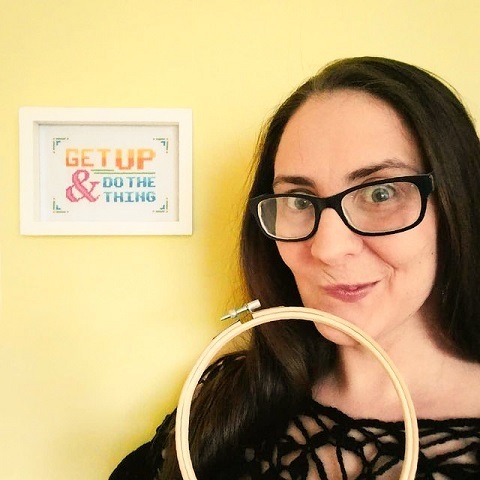Shouldn’t be that hard, right?
Maurice Moss almost managed it, but unfortunately he had an overheating problem
Well done.
(Just for those unaware, this is a reference to the show “The IT Crowd”, great sit com style comedy)
Well, every body is different. It’s just like other clothing, too, but involves more detail, but basically a piece that fits person A will not fit person B.
One way to solve this is to go to a real specialist shop instead of the normal retail shops or online sources. My wife did this after surgery, as her sizes changed, and they measured her up and found the right “layout” for her. She said it is a difference like day and night.
My wife did the same and while they cost 4 times as much as regular ones, she also said that the difference is unbelievable.
Wouldn’t it make sense to have some kind of machine that scans your chest area to find the right fit and a line of custom fit premium solutions? Such as what we do for shoe insoles.
I think a normal measuring tape could work. I went to a place and they measured my chest above/below my breasts and then across the center and lower part of my breasts. The issue is the cost for premium bras are often out of the price range for most people.
I can’t say much about bras, but as a former Buyer for a chain of high end bicycle shops, y’all are hard. We were focused on road bikes where everything down to the clothing fit is critical. I tried really hard to keep a good selection on hand, but even in the limited mostly ultra fit demographic, the size, cut, and fit range for women’s clothing is almost impossible to cover.
Women’s was a small segment for us. Most shops won’t carry much of anything. Indeed, we ran at a minimized loss margin to carry stuff. This is ultra niche specific and completely tangential, but it might help show a bit of behind the scenes retail. Carrying a large range of sizes, cuts, and styles of any clothing type is an overburden inventory nightmare. The issues are always the oddball extras that everyone gets stuck with and can’t offload anywhere near cost. All the time and labor of managing it is also an issue. The way women’s sections are always left in terrible shape is also a major contributing cost factor in overall stock costs. Having experienced life as a Buyer, the bra sections of most department stores look like break even inventory at best IMO.
Basically what you’re saying is we can’t have nice things because capitalism.
I mean I’m not in the bra buying demographic but I can still understand that it’s an issue and it sucks for women.
Yeah, if there’s anything that history and economics tells us, is that capitalism leads to less choice, whereas communism leads to many choices tailored to everyone individually
I don’t think history has ever given us communism, so there’s no way to know.
Oh no, here comes the No True Scotsman again…
If you see an Englishman in a kilt, it’s ok to say he’s no true Scotsman. See, “no true Scotsman” is only a problem if person/movement A IS actually fulfulling the functions of role B. And if you can read Marx and find a government that consistently tried to follow his writings, I’ll be very impressed and concede the point. (Though then we can talk about the difference between Marxism and other forms of socialism.)
Yeah, communism leads to empty shelves in stores, so people are pleasantly surprised by any goods at all.
See, logistics and capitalism don’t have to be tied together. A business at the end of the day needs money to stay in business. If people were willing to pay a bunch of extra money to have stuff that fits them right, it wouldn’t be so hard to keep it all in stock. It’s when you combine cheap prices, dozens of combinations of sizes and styles, customers that expect an employee will clean up their mess, and the need for immediate availability that things start to crumble.
Bingo
I think it would still be an inventory nightmare to manage under socialism or communism.
The workers would produce their own bras.
It’s more that the wide variety of body shapes makes cheaply available, well-fitting clothes difficult. You can certainly have nice things in capitalism, you just have to have them custom made. The difficulties in making and widely distributing clothes that comfortably conform to the complex female firm are present in any economic model. The best comfortable solution is custom-made items, but that requires a great deal of time, labor, and resources.
Because you can’t mass produce cheap crap and have a perfect fit customised to your exact shape.
I’d say that it’s probably doable if you had someone to measure and hand to make it for you.
It would be a grand step forward if they just redesigned underwires not to stick out of the f****** things. Literally just capping the wires with a piece of plastic that costs 10th of a penny would be a significant improvement.
Perhaps you’re supposed to take the wire out to wash them?
None of the ones in my wife’s collection are removable.
Just expensive and nobody takes the time to get fitted for them.
deleted by creator
The best bra brands and British and Polish.
deleted by creator
I like this bra from Hanes. I find it comfortable and painless. It says “hand wash only” I wash it in the washing machine and buy a new one once or twice a year. I hope you find a bra that is right for you.
They look so comfy
Sports bras all the way.
Boobs are all different, is the issue. We may have the same bra size but if Im full on top and you’re full on bottom we’d need a completely different cup shape. And of course that’s just one variable. Maybe we also need a totally different length underwire, maybe I’m projected and you’re shallow, etc etc.
The trick is to order a load of bras at once from various brands and in various styles, do a marathon try-on session recording each one against the various fit criteria, and take note of the exact measurements and features of the best fitting ones. Then if none of them were perfect, send them all back and repeat the process.
Eventually you end up knowing which brand(s) and style(s) work for your very specific body shape as well as what measurements of everything you actually need. Which is a separate thing to your “bra size” although even then it’s best to do regular re-measuring to make sure your basic size hasn’t changed.
It’s a faff but it’s worth it. The perfect bra is out there!
Sorry but this depends a lot on each person’s body. I am a B/C cup depending on brands, and most bras fit me comfortably for daily use.
B/C cup depending on brands,
That’s indicative of the problem. No 2 brands can even agree on sizing, let alone shape or any of the other factors needed for proper fit and support.
I guess, it’s no different than shoes in that regard. Or most clothing.
Yeah, I recently found out that even though men’s pants sizes are denoted by inches, they still vary across brands. It’s all bullshit.
Still doesn’t make it reasonable.
My wife has tried several bra brands. She landed on Branwyn merino wool bralettes, which she loves. Very comfy and great airflow. I’ll mention, she is smaller and prefers bralettes over more supportive bras, so your mileage might vary.
Honestly, I think the answer is because keeping breasts pointed forward, against the forces of gravity requires extra support, and as a species, we haven’t been wearing bras long enough adapt to that.
That and the fact that average breast size has increased significantly in the last few decades
Do you think that’s growth hormones in our food or selective breeding?
People gettin fatter
In the long term, no one is quite sure what it is that causes humans to have permanent breasts, given that no other primates do. There are theories around fertility signalling, evolutionary selection via mate preference, extra insulation given the lack of body hair in humans, extra fat deposits to get breast feeding folk through feeding a new born in times of scarcity etc, but no one can say for sure…
But none of that has anything to do with why breast size has increased so significantly in the last several decades. Circumstantial evidence links that to increasing body weight, as the most significant increases are in countries with the biggest average increase in body weight.
Because they would have to be tailor-made.



















